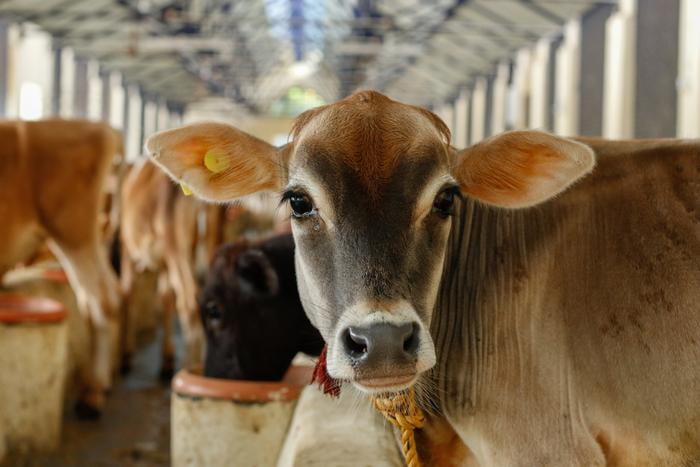A new study has shown that a vaccine currently used in humans to prevent tuberculosis (TB) can significantly reduce the infectiousness of vaccinated livestock, potentially leading to better control and elimination of bovine tuberculosis. The research, conducted by scientists from Penn State, Addis Ababa University, and the University of Cambridge, was published on March 28 in the journal Science.
Bovine tuberculosis is a livestock disease that causes substantial economic losses in animal agriculture worldwide. The disease can also be transmitted to humans, leading to severe illness and death. It is estimated that around 10% of human tuberculosis cases are a result of spillover from infected livestock. While these zoonotic TB (zTB) infections are most commonly associated with gastrointestinal issues from consuming contaminated milk, zTB can also cause chronic lung infections in humans that are more difficult to treat due to the cattle bacteria’s natural antibiotic resistance.
The study, carried out in Ethiopia, examined the effectiveness of the Bacillus Calmette-Guérin (BCG) vaccine in directly protecting vaccinated cattle and indirectly protecting both vaccinated and unvaccinated cattle by reducing transmission. The researchers placed vaccinated and unvaccinated animals in enclosures with naturally infected animals over a two-year period.
“Our study found that BCG vaccination reduces TB transmission in cattle by almost 90%,” said Andrew Conlan, associate professor of epidemiology at the University of Cambridge and a corresponding author of the study. “Vaccinated cows also developed significantly fewer visible signs of TB than unvaccinated ones. This suggests that the vaccine not only reduces the progression of the disease, but that if vaccinated animals become infected, they are also substantially less infectious to others.”
The researchers also developed a transmission model using livestock census and movement data from Ethiopia to explore the potential for routine vaccination to control bovine tuberculosis. The model’s results suggest that vaccinating calves within Ethiopia’s dairy sector could reduce the reproduction number of the bacterium, halting the projected increase in the disease burden and putting herds on a path towards eliminating TB.
Ethiopia, which has the largest cattle herd in Africa and a rapidly growing dairy sector, was chosen as the focus of the study due to its growing burden of bovine tuberculosis and lack of a current control program. The country is representative of similarly situated transitional economies.
“Bovine tuberculosis is largely uncontrolled in low- and middle-income countries, including Ethiopia,” said Abebe Fromsa, associate professor of agriculture and veterinary medicine at Addis Ababa University in Ethiopia and the study’s co-lead author. “Therefore, vaccination of cattle has the potential to provide significant benefits in these regions.”
The study’s findings have implications beyond low- and middle-income countries. The United Kingdom, Ireland, and New Zealand also experience considerable economic pressures from the disease, despite having intensive and costly control programs in place.
“For over 20 years, the U.K. government has pinned hopes on cattle vaccination for bovine tuberculosis as a solution to reduce the disease and the consequent costs of the controls,” said Professor James Wood from the Department of Veterinary Medicine at the University of Cambridge. “These results provide important support for the epidemiological benefit that cattle vaccination could have to reduce rates of transmission to and within herds.”
The research was supported by the Bill & Melinda Gates Foundation and various research councils in the United Kingdom. The study’s findings offer hope for a more effective and humane approach to controlling and eliminating bovine tuberculosis, benefiting both animal and human health worldwide.

